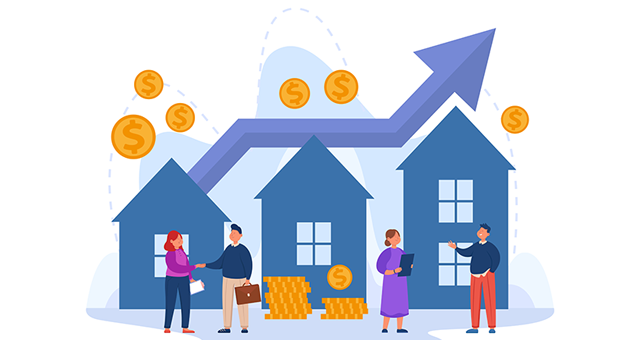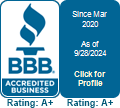
Unlocking the Value Of Your Home: Smart Ways to Use Home Equity (And When to Think Twice)
One benefit of being a homeowner is that you can accumulate equity when the value of your home increases due to market forces. It is a resource that you can tap into for various financial needs.
The peak pandemic home sales drove the home equity levels currently accessible to borrowers. In 2024, the average amount of tappable equity held by homeowners is $199,000 per borrower, according to mortgage technology and analytics firm Black Knight. However, while it is tempting to use this built-up value, it is crucial to be strategic to ensure that it benefits you in the long run.
In this blog, we will explore the best ways to use your home equity and the situations where holding off might be the wiser choice.
Home Equity Basics
It is crucial to comprehend home equity and how it works before delving into how to use it. Your home equity is the total amount of your property that you now possess. Put another way, it is the difference between your home’s market value and the amount still owed on your mortgage. Your equity will rise, and the principal will fall with each mortgage payment you make. Also, when the assessed value of your house rises over time, your home’s equity can increase as well.
A few methods to access home equity include Home Equity Loans, Home Equity Lines of Credit (HELOCs), and Cash-Out Refinancing. Generally, you can borrow up to 85% of your home value with a HELOC or a Home Equity Loan. With a Cash-Out Refinance, the maximum loan amount is 80%. You would also have to pay closing costs, which range from 2% to 5% of the total loan amount, in addition to your interest rate.
Each option has its advantages and risks, making it essential to choose the right one based on your financial situation and goals.
6 Ways to Use Home Equity Prudently
When used wisely, home equity can be a valuable resource. Here are six of the most common and sensible ways to use it:
1. Home Renovations: Adding Value to Your Property
Reinvesting in your house is one of the best uses of home equity. Renovations like kitchen remodels, bathroom upgrades, or adding energy-efficient features can enhance your living space and increase the market value of your home. Think of it as putting money back into your pocket for the future, especially if you plan to sell your home.
For instance, finishing an unfinished basement with drywall and flooring can yield a 70% return on investment (ROI), according to HomeLight. Alternatively, the Real Estate Tech claims you may recover between 39% and 50% of your costs by building a deck. You can also deduct interest from your taxes if you utilize the funds from a home equity loan to make extensive improvements to your property
2. Higher Education Expenses: Investing in Your Future
One sensible way to make good use of your home equity is to invest in education, whether it is for yourself or your children. Compared to other borrowing options, you can avail of reduced interest rates when financing your educational expenses with a home equity loan or line of credit (HELOC). Hence, using your home equity can be a prudent investment, whether for further education, vocational training, or to support the educational endeavors of your kid.
However, consider all your options, including scholarships, grants, and other financial aid, before tapping into the value of your home.
3. Emergency Fund: A Financial Safety Net for Uncertain Times
Since life is unpredictable, it is essential to have an emergency fund. Generally speaking, it is advisable to accumulate enough cash for three to six months’ worth of expenses. However, occasionally, you may not have an emergency fund, or your needs may outweigh your emergency reserves. Then, a home equity line of credit (HELOC) provides a cushion for unexpected expenses like medical bills or job loss.
In addition, after you repay your HELOC, it will return to its original amount. However, before borrowing against your home for an emergency, ensure you can repay the loan and use it as a last resort rather than a go-to solution for everyday financial hiccups.
4. Debt Consolidation & Refinancing: Streamlining Your Finances
If you are juggling multiple high-interest debts, using home equity to consolidate them can be a game-changer. You can pay off high-interest debts like credit cards and personal loans by choosing a home equity loan or a cash-out refinance. The interest rates on these loans are usually lower than those on personal or other debt consolidation loans because your home is the collateral. As a result, borrowing against your home equity is frequently less expensive and your monthly payments simpler.
You are converting unsecured debt into secured debt. Your home is at risk, so ensure you can afford the payments and do not take on further debt.
5. Investing In Real Estate: Building Your Portfolio
Another strategy to leverage this asset is to use home equity to buy a second home or an investment property. It can be attractive if you want to generate rental income or enjoy a vacation home. Eventually, this can also help to create passive income and diversify your portfolio.
But be cautious—real estate markets can be unpredictable, and managing additional properties requires time, effort, and financial stability.
6. Investing in Business: Advancing Your Dreams of Entrepreneurship
Investing in a business startup or expansion requires significant capital, and home equity can be a source to fund it. Using home equity could be a viable option if you are confident in your business plan and the potential for success.
However, it is essential to weigh the risks carefully, as no business has a guaranteed ROI. You are supposed to repay the loan even if you lose all or part of your funds. If you cannot make loan payments, you risk losing your property.
Red Flags: Situations Where Using Home Equity Might Be Risky
While the options above highlight positive uses of home equity, there are scenarios where it could be financially dangerous:
1. Covering Day-to-Day Expenses
If you are using home equity to pay for daily living expenses, it could indicate deeper financial issues. Relying on your home equity to fund your lifestyle can quickly lead to trouble if your income decreases or the value of your home drops. In such cases, it is better to reassess your budget and seek alternative solutions.
2. Risky Financial Investments
Using home equity to fund high-risk investments, such as stocks or speculative real estate, can be extremely risky. You risk losing your money and your house if the venture is unsuccessful.
3. Expensive Buys
While it might be tempting to use home equity to purchase a new car, furniture, or other luxury items, these purchases do not offer any return on investment. It can put your financial stability in danger if you cannot repay.
4. Overspending on Trips.
While a perfect vacation may seem like a once-in-a-lifetime adventure, financing unnecessary travel with home equity is not a good idea. It just does not make sense to exchange one week of leisure for a second mortgage. It would be wiser to save the necessary funds for the trip over time. Knowing that you are not taking on any more debt and will return home with priceless memories will be much better.
Bottom Line
Home equity can be a versatile financial tool, offering numerous ways to improve your monetary situation or fund significant life goals. But, it is crucial to use caution when using this resource. Consider your long-term financial goals, risks, and alternative options before tapping into home equity. The right strategy can open doors to new opportunities. But do not forget that it comes with safeguarding your financial future.


